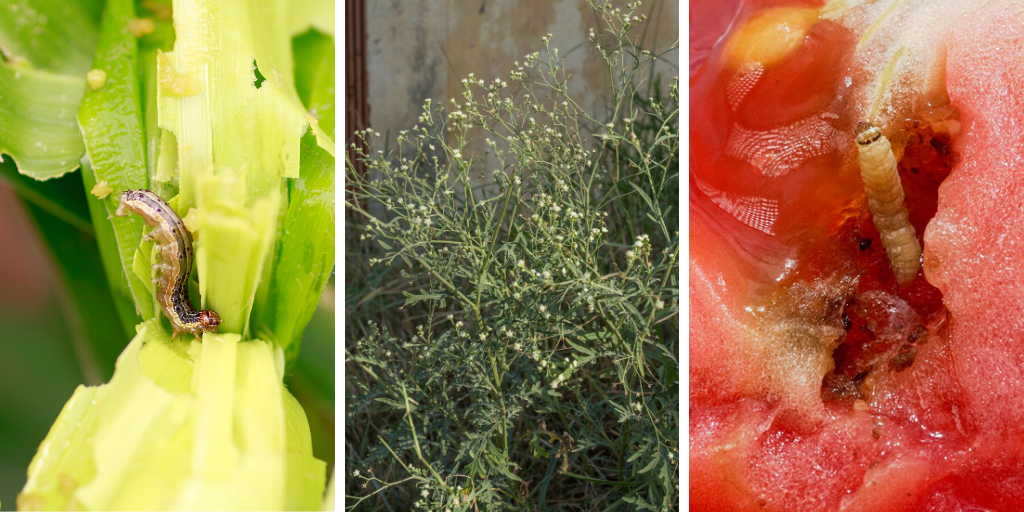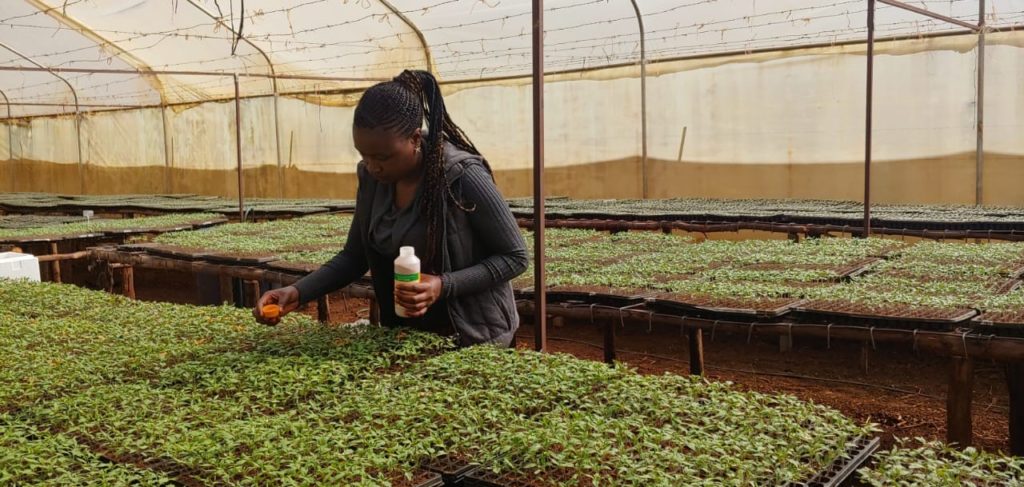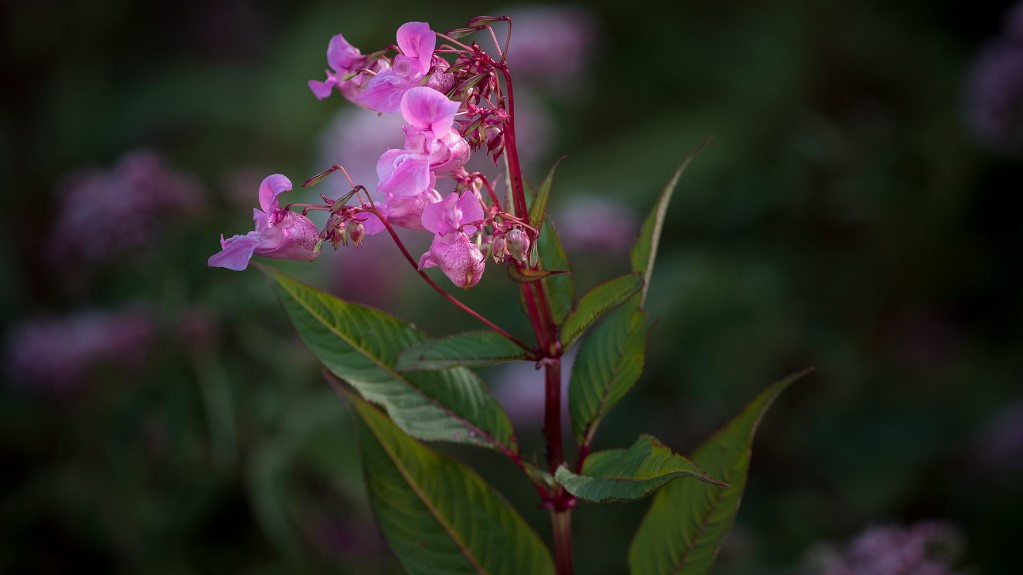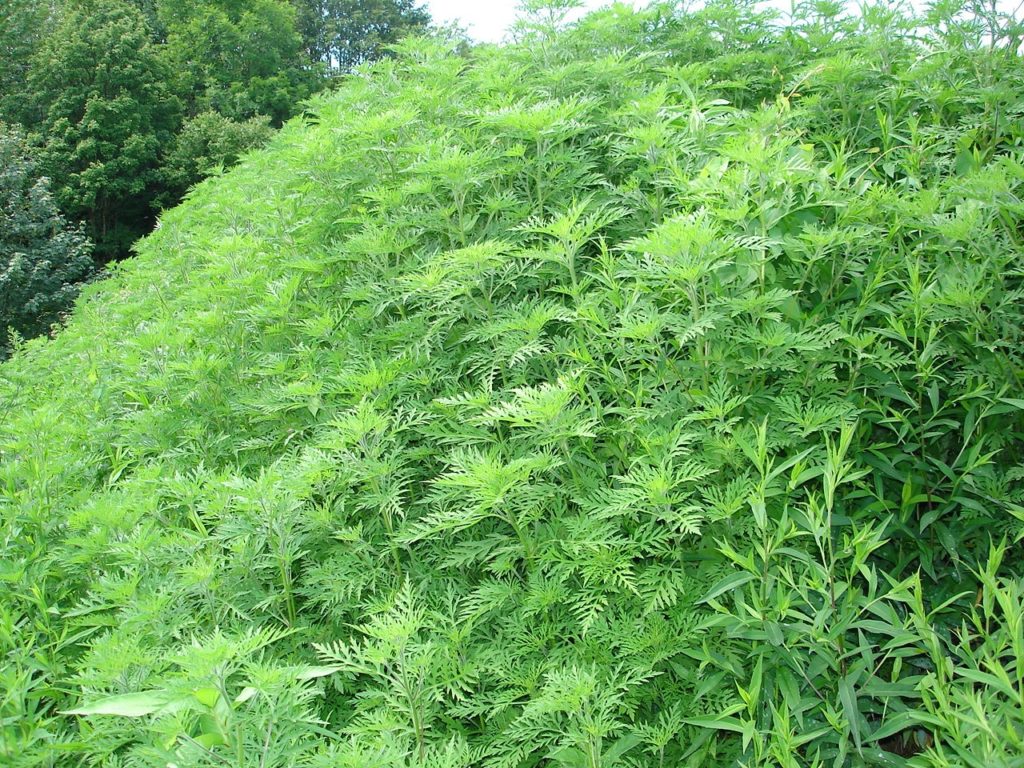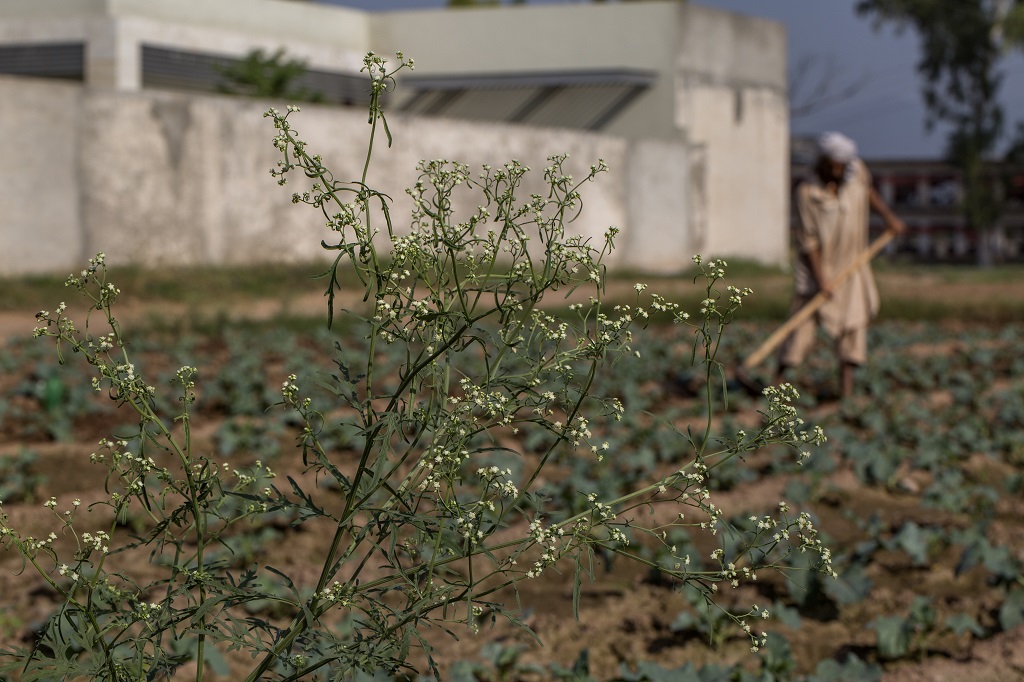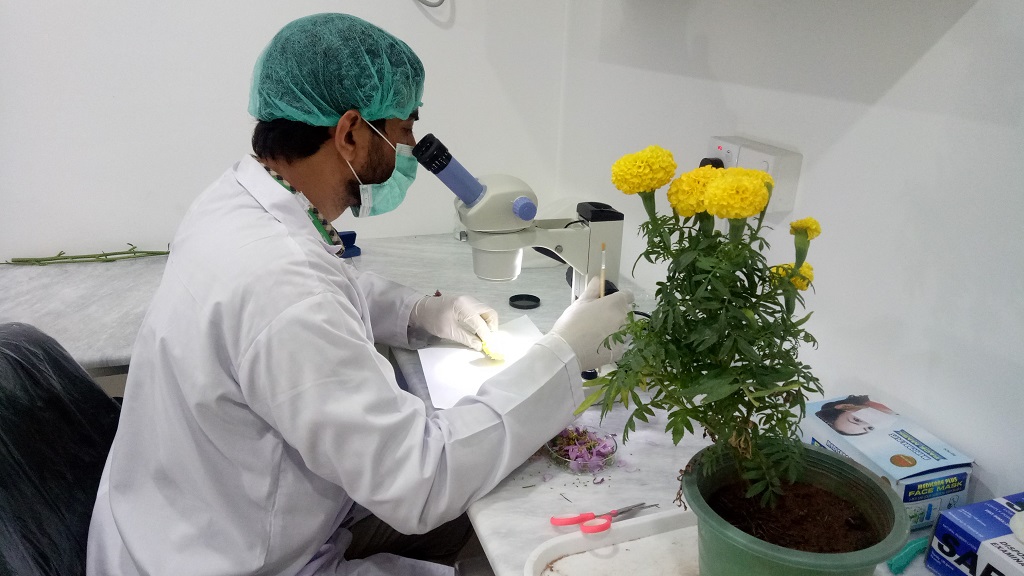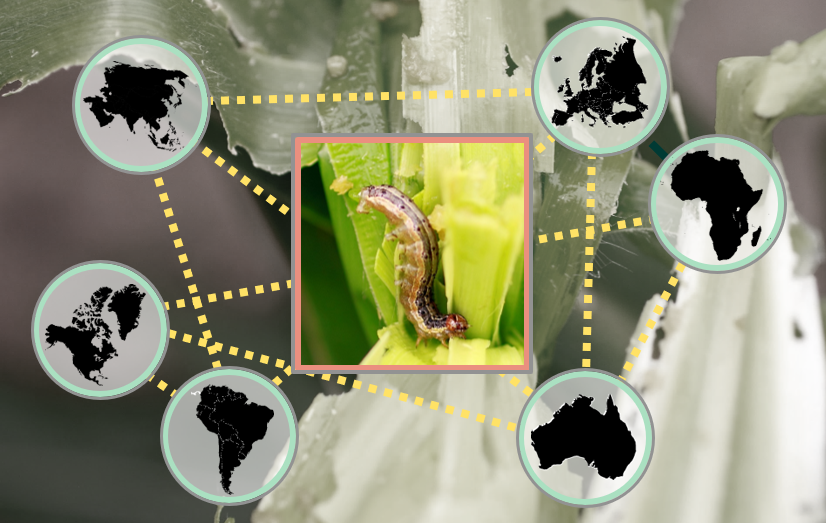Sentinel trees: an early warning system for new invasive threats
With increased levels of human development, transportation and changing climates, we are seeing greater instances of invasive species introduction and spread across all continents. Such invasive species can cause significant ecological and economical impacts in targeted areas, for example the elm bark beetle (Hylurgopinus rufipes) which spread across Europe from North American log transports and…
Using online workshops to ensure the fight against invasive species continues in Pakistan
As the global COVID-19 pandemic continues, CABI is ensuring that efforts to combat invasive species are continuing. The CABI centre in Pakistan organized a one-day online workshop on the development of Pest Management Decision Guides (PMDGs) and Technical Briefs on the invasive pests: fall armyworm, parthenium weed, and Tuta absoluta.
Controlling Himalayan balsam, one of the UK’s most invasive weeds
Himalayan Balsam’s beautiful pink flowers appear between June and September. We take a look at Himalayan balsam (Impatiens glandulifera), one of the UK’s most invasive and problematic weed species, and the work CABI is doing to combat its spread. Why is Himalayan balsam such a big problem?
Biocontrol: Early season leaf damage could inform us whether a noxious invader produces seeds
CABI scientists suggest a forecasting model could assess the ability of a humble beetle to control Ambrosia artemisiifolia, which causes major crop losses and is a nuisance to human health, as part of a wider management plan that also includes mowing, ploughing or mulching of the fields just before male flower formation.
Communication is key: CABI publishes framework for strategic communications during pest outbreaks
The invasion of a highly destructive plant pest can have a devastating effect on farmers’ crop production, natural ecosystems and economic trade. In Africa, where a large proportion of people live in rural areas and rely on subsistence agriculture, invasive species can cause severe damage and seriously impact food and nutritional security.
The future of fall armyworm research
As COVID-19 forces more and more people indoors, the challenges facing scientific research do not diminish. If anything, the sudden requirement to maintain a sensible distance between colleagues serves only to highlight the lack of resources currently available to facilitate remote working and collaboration in research circles.


